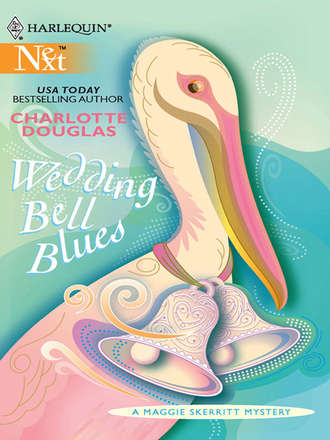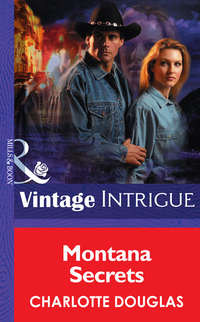
Полная версия
Wedding Bell Blues
I squeezed his hand and released it when the waitress returned with my tea. Bill waited until she’d taken our order and left before continuing. “So, what is bugging you today?”
I tried to get a handle on the vague dissatisfaction I felt so I could put it into words. “I think I need a career change.”
He sat back in the booth as if I’d hit him. “You want out of the business? We only started the P.I. firm a few months ago.”
I was doing a lousy job of expressing how I felt, primarily because I couldn’t really put a name to my discontent.
“Look at us,” I said. “You doing background checks on someone’s great-aunt Agatha and me chasing down runaway brides. When I was a cop, I at least had the satisfaction of knowing that what I did made a difference.”
Bill shook his head. “How quickly you forget.”
“What?”
“The futility of being on the job. Long boring hours on patrol or surveillance, following one dead-end lead after another, cases we couldn’t crack, and the criminals we collared, only to have them released on technicalities. We didn’t always win the good fight for truth, justice and the American way.”
“At least I felt useful.” My mood had blackened this morning with the arrival of Mother’s package and worsened with the story of Alicia Langston. I was sliding downward into depression and unable to put on the brakes.
Worry filled Bill’s blue eyes. “When’s the last time you had a checkup?”
“I don’t remember.”
“Then it’s been too long. Schedule one, okay?”
“But I feel fine.”
He cocked an eyebrow. “You’ve been through a lot recently. A string of murder investigations, the police department’s closing, your mother’s illness. That much stress can take its toll.”
“I’m fine, really. Just having a bad day.”
“Then have a checkup for my peace of mind, okay? So I won’t worry about you.”
My late father had been a cardiologist and a firm believer in preventive medicine. As little as I liked being prodded and poked, I knew Bill was right. “I’ll schedule a physical, although I don’t relish an examination. My current doctor looks younger than Doogie Howser.”
Taking me at my word, Bill nodded. “Now, about this career thing.”
“I’m open to suggestions.”
His eyes lit with devilment. “Have you considered exotic dancing?”
“I’m a bit long in the tooth for that.”
“Believe me, my lovely Margaret, no one would be looking at your teeth.”
“And I’d meet a whole new class of people.” His teasing was already brightening my mood. I couldn’t be around Bill for long without feeling better.
“If you’re missing police work,” he said with more seriousness, “you could apply with the sheriff’s office. And Tampa’s short a detective now that Abe Mackley’s retired.”
“Are you trying to get rid of me?” My depression was lifting, only to be replaced by paranoia.
He shook his head. “I’m happy to be working with you, but I want you to be happy, too.”
“You’re right about the dark side of police work. I’m too old for the long hours and fed up with the political infighting rampant in every department.”
“You’re forty-nine,” he said with a twinkle in his eye, “going on twenty-three. Young enough to do whatever you want. I take it library work is out?”
I’d graduated from college with a degree in library science. When I’d abandoned books and entered the police academy to fight crime, I’d never looked back. “The shock of the peace and quiet of a library job might kill me.”
“You could teach at the academy. Or sell real estate. That’s hot right now.”
Neither profession had any appeal. I shook my head. “I don’t have the patience for either.”
The waitress returned with our order, and Bill dug into his burger. After chewing and swallowing his first bite, he said, “The bookstore beneath the office is for sale.”
“Really?”
“The owners want to move back north. Last year’s hurricane season spooked them. You could buy them out, be your own boss.”
I paused with a French fry halfway to my mouth. “You’re not serious?”
“You love books. You’d be surrounded by them every day.”
I considered his suggestion. “And spend all my time directing customers to the cookbook and self-help shelves?” I shook my head. “Where’s the challenge in that?”
“Where’s the challenge in being a private investigator?”
“It’s like working puzzles, such as where is Alicia Langston and why did she run away?” A light dawned as I realized what he’d done. “I’m addicted, aren’t I?”
“To solving puzzles? ’Fraid so. More than two decades as a cop will do that to you, a permanent case of ‘what’s wrong with this picture?’”
“Which is why I’d never be happy doing anything else.”
“I didn’t say that,” he protested.
“But you’ve made me recognize it.” I dug into my burger with gusto, feeling as if a weight had lifted from my shoulders. Bill was my North Star, helping me find my way, especially when frustration caused by my mother knocked me off course.
Bill’s cell phone rang and he answered it quickly.
“That was Darcy,” he said after he flipped it shut. “Antonio Stavropoulos called the office. He wants to hire us.”
“For what?”
“He didn’t say, just that he wanted to talk to you about it.”
“More work is good,” I said with conviction, “as long as it has nothing to do with weddings.”
After lunch, I walked from the Dock of the Bay on the south side of the marina across the city park to Sophia’s on the north side. Although the temperature had risen into the nineties, an onshore breeze laden with a fresh briny scent made the trek bearable, and I arrived at the upscale restaurant without dissolving into a puddle of sweat.
Sophia’s, built to resemble a Venetian palazzo in imitation of John Ringling’s Sarasota mansion, perched in pink-stuccoed splendor on the water’s edge and brought back a flood of memories. Last fall the restaurant’s owner had been one of several victims in a series of murders. Dave Adler, my young partner on the Pelican Bay Police Department, and I, along with help from Bill, had solved the crimes. The last time I’d seen Antonio Stavropoulos had been at Thanksgiving, when he’d asked me to stop by for a box of pastries, a gift of thanks to the department for their hard work.
In the lobby, crowded with patrons waiting to be seated in the luxurious dining room that served world class food, I looked for Antonio, but the maître d’s station was empty. I snagged the elbow of a passing waiter, asked for Antonio, and he pointed me down a hall to the manager’s office, formerly occupied by Lester Morelli, now awaiting trial for murdering his wife Sophia, among others.
At the end of the hall, I knocked at the door and noted Antonio’s name engraved on a brass plate. The maître d’ had moved up in the world.
“Enter,” a masculine voice with a thick Greek accent called.
I stepped into the office, and Antonio bounded from behind the desk to greet me and offer a chair. The tall, elderly man was dressed as usual in a well-tailored suit with a continental cut and an impeccable white shirt and conservative tie. His gray hair and snowy mustache were neatly trimmed.
“Thank you for coming so quickly,” he said. “We have a…ah…situation.”
“You’re the manager now?” I settled in the chair across from the desk.
Antonio nodded, circled his desk and sat. “Manager and part owner. I bought a half interest from Anastasia Gianakis. She is my silent partner.”
Anastasia, Sophia Morelli’s aunt, a secondary beneficiary, had inherited the restaurant when I’d proved Lester, Sophia’s husband and heir, had killed his wife. The creep, who’d counted on getting everything his dead wife had owned, might end up instead with a death sentence.
“From the crowd in the lobby,” I noted, “I’d guess business is good.”
“Business is excellent,” Antonio said with a nod of satisfaction. “And I want to keep it that way. This new firm of yours, do you handle security?”
“It depends. What kind of security do you have in mind?”
Antonio leaned forward and clasped his long, slender fingers on the desktop. “You have heard of the Montagues and the Capulets? The Hatfields and McCoys?”
I nodded, wondering where he was headed.
“Well, I have a dinner for two hundred scheduled for the Burnses and the Bakers.”
For a moment I drew a blank. Then memory served. “The Pineland Circle Burnses and Bakers?”
He nodded solemnly. “The very same.”
“They’re having a dinner together?”
He nodded again with a grimace. “And I need your help to assure that they do not kill each other and destroy our banquet room in the course of the evening.”
“Why would the Burnses and Bakers schedule a dinner together?”
Antonio cocked his head in interest. “Do you know the history of these feuding families?”
“During the time I was with the department, our officers probably responded to more signal twenty-twos at Pineland Circle than all other addresses combined.”
“What is this ‘signal twenty-two’?”
Police jargon came so naturally to me, I often forgot others weren’t fluent. “A disturbance. To put it mildly.”
I shook my head. “And it all started over a grapefruit tree.”
“Someone was stealing fruit?”
“If only it had been that simple.” I could still picture the scene on what should have been a quiet residential cul-de-sac fifteen years ago, with twelve little urchins, all under the age of twelve, six in each family, who seemed to believe their sole purpose on earth was to torment each other. “The children from each family would stand in their respective yards and taunt each other by calling names. The first blow in the battle was struck when the Burns kids began pelting the Baker children with rotten grapefruit from the Burnses’ tree.”
“Where were their parents?”
“Unfortunately, more often than not, standing on the sidelines, egging them on.”
“And the police put a stop to this?”
I shook my head. “Events escalated. The oldest Baker boy chopped down the Burnses’ grapefruit tree. The Burnses filed charges. It might have ended there, but the Baker children retaliated by slashing the tires on Mr. Burns’s truck and scrawling graffiti over their driveway and sidewalk. The adult Burnses filed more charges, while their kids soaped the Bakers’ windows and rolled their trees in toilet paper. Then the Bakers filed charges. This back-and-forth went on for years, often with physical confrontations between the children. It was like gang warfare, but without knives or firearms.”
“And the parents continued to encourage it?” Antonio asked in disbelief. “Why did they not move away?”
“The whole situation became a test of wills.” Patrol officers had answered calls on Pineland Circle right up until the department had disbanded last February. “The family feuds became a reason for living, a challenge to see who blinked first.”
Antonio leaned back in his chair. “How ironic.”
“This dinner of yours,” I warned, “it’s more likely to be World War III.”
“That is why I want your firm to provide security to keep the attendees under control.”
“Why are they having a joint dinner anyway?” I asked.
“I did not tell you?” He shook his head as if he couldn’t believe what he was going to say. “Linda Burns is marrying Kevin Baker and both their extended families will be present at the wedding reception here.”
CHAPTER 3
“You don’t need security,” I said with conviction. “You need Delta Force. Maybe CentCom at MacDill will rent them out.”
Antonio’s expression fell.
“If you knew about their feud,” I asked, “why did you agree to host their reception?”
“I did not know. Mrs. Burns exhibited tension and made some hints of disagreement when she came in to book the banquet room and select the menu, but strain is often present between prospective in-laws. I thought nothing more about it until my sous-chef recognized the names on the calendar and alerted me. He lives down the block from them and has witnessed their neighborhood turf wars.” Antonio spread his hands in a gesture of helplessness. “By then, the contract was signed.”
“I hope it includes a healthy damage deposit.”
“So you cannot help me?”
I suppressed a sigh. What was the point of being in business if we couldn’t meet the client’s needs? “When’s the reception?”
“The last Saturday of the month.”
I thought for a moment. With Bill and me and Abe Mackley, who’d indicated an interest in working with us after his retirement, I’d have a force of three. And Adler, with one toddler and a new baby on the way, might want to earn some extra cash.
“How many guests did you say?” I asked.
“Two hundred.”
“Are you serving liquor?”
Antonio’s face paled. “Champagne and an open bar.”
Fifty people apiece, in varying stages of hostility and inebriation, for us to keep tabs on. “And exactly what would you expect security to do?”
“Mingle with the guests. Watch for signs of problems. Escort troublemakers from the room to cool off. If they do not, bar them from reentering. And, but only as a last resort, call the police. Sophia’s has a reputation to maintain.”
Recalling the long history of bad blood between the two families, I recognized the very real potential for someone being seriously hurt, not to mention damage to the restaurant.
“Give me a day or two. I’ll see if I can put together a team. If not, I’ll find a good security firm to recommend.”
Antonio’s relief was palpable. “Thank you, Detective Skerritt.”
“Just Maggie now,” I said and headed for the door. “I’ll be in touch.”
After leaving Sophia’s, I returned to the Dock of the Bay for my ancient Volvo and drove north on Alternate Nineteen. Just south of the country club, I turned into an older and less elegant neighborhood, filled with Spanish-style homes from the thirties and forties with stucco exteriors and clay tile roofs. With almost every square inch of property already built out in the county, these houses, which would once have been affordable to the working class, now sold for over three hundred thousand. Garth Swinburn, Alicia’s fiancé, had either inherited his or earned a generous income.
I parked in the driveway beneath the shade of a spreading live oak bearded with Spanish moss and followed a mosaic-tile walk to the front door. With its walls a cheerful Tuscan gold and roof of terra-cotta, the house had a lush lawn and attractive, tropical landscaping. Although decades old, it had been well maintained and had a welcoming appearance, a home most brides would appreciate, so I doubted that disapproval of the real estate had played a part in Alicia’s flight.
I rang the doorbell and waited. Jeanette had told me Garth would be here, since he ran his computer consulting business from home. I was beginning to think he’d left to make a house call, when the heavy wooden door with its tiny wrought iron-covered window swung open.
Standing on the threshold was a tall, gangly man in his mid-twenties. His sandy hair stood in unruly peaks, as if he’d recently run his fingers through it, his feet were bare, and he was dressed in khakis and the most obnoxious plaid shirt I’d ever seen. His eyes were glazed with the look of someone who’d just awakened or been pulled from the depths of concentration. With his thick glasses, he reminded me of guys who, in my youth, would have worn plastic pocket protectors and carried slide rules on their belts. Nerds, we’d called them. I didn’t know if the term was apt in today’s lingo, but Garth definitely had a geeky air about him.
Until he smiled. His welcoming look brightened his face and exuded warmth. The kid was a charmer.
“Ms. Skerritt?”
I nodded. “Garth Swinburn?”
“Come in,” he said. “Mrs. Langston said I should expect you. Have you found Alicia?”
He sounded so hopeful, I hated to disappoint him. “I don’t work quite as fast as those computers of yours. This may take a while.”
“Of course.” He blushed until the tips of his ears turned red. “Silly of me. I was just hoping—”
“Can you answer a few questions?”
“Sure. Anything to help. Come in.”
I stepped through the open door into a completely bare living room. Not even draperies on the windows, just a high sheen on the hardwood floors. He must have seen the surprise in my expression.
“The only room that’s furnished is my office,” he said. “I even sleep there. I’m waiting for Alicia to decide how she wants to decorate.”
From the way he spoke her name, I could tell Garth was crazy about his fiancée.
We crossed the living room, passed through a newly remodeled kitchen and stepped into a sunny family room at the back of the house. Every flat surface was covered with monitors, computers, piles of software, boxes of parts and rolls of cables. The only uncluttered spots were a rolling stenographer’s chair and a sofa topped with a pillow and blanket.
Garth tossed the sofa bedding to one side and offered me a seat, then settled into the chair. “I’m worried sick,” he said.
“You still haven’t heard from Alicia?”
His shoulders drooped, and he shook his head. “I can’t believe she’d just walk out without saying something. She’s not a callous person.”
“According to her mother, her note said she was trying to ‘find herself.’ Maybe she has to figure out what she wants to do.”
Garth looked doubtful. “I don’t get it.”
“You had no clue she was unhappy?”
“She wasn’t unhappy,” he insisted. “Just the opposite. She seemed to be walking on air. I figured she was glad to be finishing her dissertation and looking forward to our wedding. That’s why I’m so worried. I don’t believe Alicia left of her own free will.”
“How do you explain the voice-mail message and the written note?”
He scratched the tip of his nose. “Someone could have forced her to leave them.”
“Did Mrs. Langston share them with you?”
He nodded. “I insisted we call the police.”
“You think Alicia left the messages under duress? Could you hear it in her voice, tell it from her writing?”
Garth thought for a moment, then shook his head. “She sounded normal, and her handwriting looked typical.”
“Then why your conviction that someone’s taken her against her will?”
He confronted me with guileless brown eyes. “Because Alicia wouldn’t do this to me or her parents. She knows how much pain it would cause. Like I said, she’s not a thoughtless or selfish person.”
“When did you last see her?”
“The night before she disappeared. We had dinner at Angellino’s.”
“What did you talk about?”
His face reddened again. “I did most of the talking. I was excited about new software I’m developing for user-friendly multi-computer interfacing with business applications and told Alicia all about it.”
That conversation might have put the girl into a deep sleep but not necessarily on the run. “And what did Alicia talk about?”
“Alicia’s not like most girls.”
“How do you mean?”
He scrunched his face as if searching for the right words. “She isn’t into fashion and trends.”
“Then why the big wedding with all the bells and whistles?”
He grimaced. “Her mother’s idea. You know how it is.”
Boy, howdy, did I ever. I nodded and tried to ignore the sympathetic clenching in my gut. “So she wasn’t looking forward to it?”
Garth shook his head. “But she didn’t really mind it too badly. She wants to make her mother happy. Alicia’s like that, always thinking of others. And always looking inward, as if material things don’t matter.” He flushed again. “Since I’m usually neck-deep in my work, we make a good pair. Not exactly social butterflies.”
So good a pair that she left? “You were about to tell me her topic of conversation that night.”
“Right.” He sat with one leg crossed over the other, his ankle resting on his knee, giving me an eye-level view of his bare size-thirteen foot. I contemplated popular mythology and wondered about their sex life but was smart enough to know what not to ask.
Garth leaned forward. “Alicia was expounding on one of her favorite themes that night—who am I and why am I here? You ever ask yourself those questions?”
“Only when I’ve had too much to drink.”
He flashed his boyish grin again, reminding me of Adler, another point in Garth’s favor. “Until our dinner at Angellino’s, Alicia had worried that she’d never find the answers. But that night she said she thought she’d discovered the key.”
“Did she say what it was?”
“Nope. Said she didn’t want to talk about it further until she was sure.”
“Did she say where she’d been, what she’d been doing, who she’d been talking to?”
“Like I said, we talked mostly about me.” His expression spasmed with distress. “God, it just hit me. You think that’s why she ran away? Because I talk too much about myself?”
I felt sorry for the kid. “I don’t know enough about Alicia to form an opinion yet.”
“I should have paid more attention to her.”
“Don’t beat yourself up.” He was male, after all. His self-absorption was in his genes. And his jeans. “And don’t jump to conclusions. Wait until you’ve talked to Alicia.”
“You have to find her.”
“I’m planning on it.”
“Have you talked to her friends?”
“Mrs. Langston gave me a list. Anyone in particular I should start with?”
“Julianne Pritchard.” He lifted his hand and crossed two fingers. “She and Alicia are like this.”
“Have you talked to Julianne?”
Garth nodded. “She says she doesn’t know where Alicia is.”
“She might know other facts that will help. I have her address.”
Garth checked his watch. “Julianne’s probably still at work. She waits tables at Hooters in Clearwater.”
His worry was palpable, so I tried to reassure him. “Julianne may know something that will lead me to Alicia.”
“I hope so.” His expression turned grim. “If not, my gut tells me Alicia’s in real trouble.”
CHAPTER 4
I left Garth’s house, headed east to U.S. 19, then turned south. What had, in my childhood, been a bucolic drive along a country road through pastures and citrus groves was now six lanes under construction of wall-to-wall traffic hell. Our local politicians referred to it as progress. I figured for every minute I spent on that route, another hair on my head turned gray.
I exited at the cloverleaf at Gulf-to-Bay Boulevard and turned left onto another six-lane nightmare. Between tourists who hadn’t a clue where they were going and the over-ninety retirees whose licenses should have been revoked years earlier, my commute reminded me of the bumper-car rides at the county fair, minus the element of fun. I said a silent prayer of thanks that my old Volvo was built like a tank and considered the odds. I’d been rear-ended two months ago, so statistically I wasn’t due for another crash soon, unless I turned out to be one of those unfortunate anomalies.
With a sense of relief, I parked in Hooters’ lot and turned off the engine. Every time I survived a drive through the county, I felt the urge to carve a notch in my steering wheel.
The Hooters parking lot and restaurant were almost empty at mid-afternoon. The lunch crowd had left and happy hour hadn’t started. I stepped into the dim interior and inhaled the odor of stale beer, fried onions and cooking grease while my eyes adjusted. A large-screen television over the bar was tuned to a golf tournament with the commentary muted. Raucous music blared through the sound system. The place lived up to its slogan of “Delightfully Tacky Yet Unrefined.” I couldn’t have said it better myself.
“Can I help you?”
Perky was the only word to describe the waitress who greeted me. About five foot five with long legs, tiny waist and generous breasts, all accentuated by the Hooters uniform of hip-hugger shorts and cropped, tight T-shirt, she could have been a cheerleader for the NFL. With long, straight hair, however, this was no dumb blonde. Intelligence shone in her clear gray eyes.








